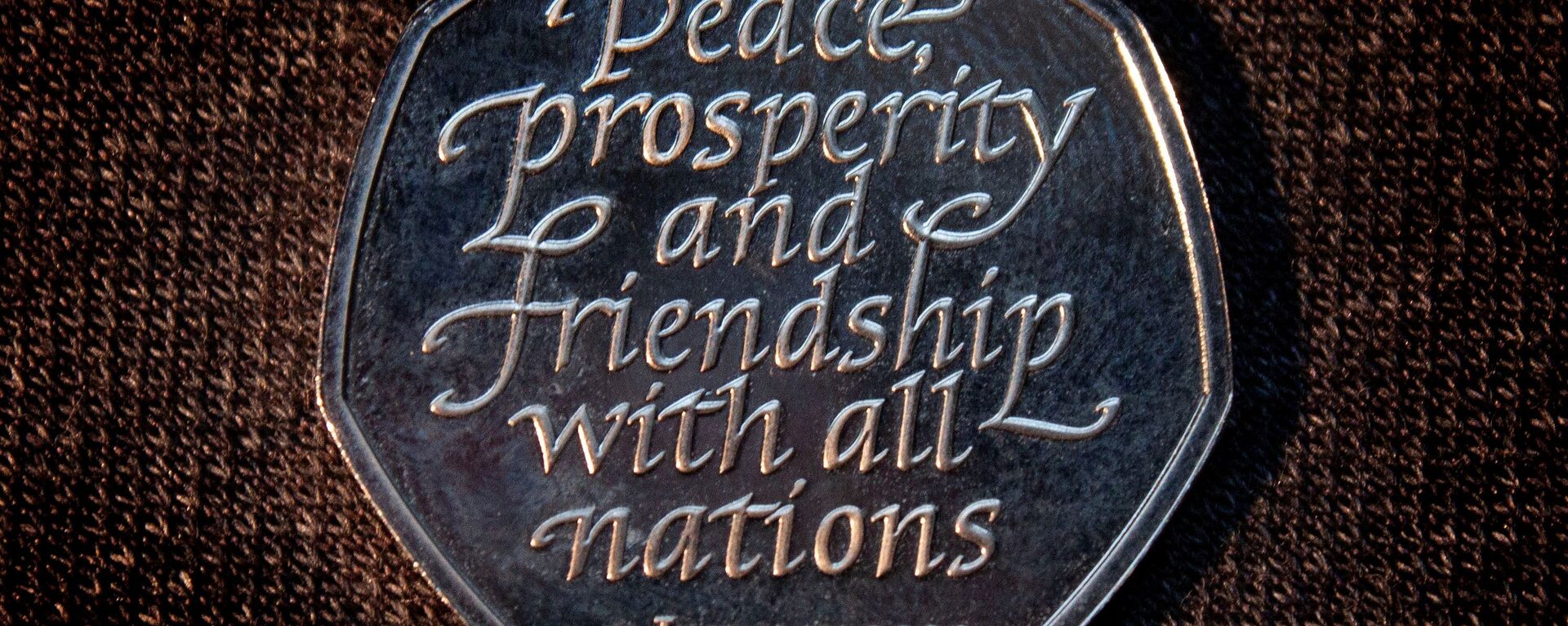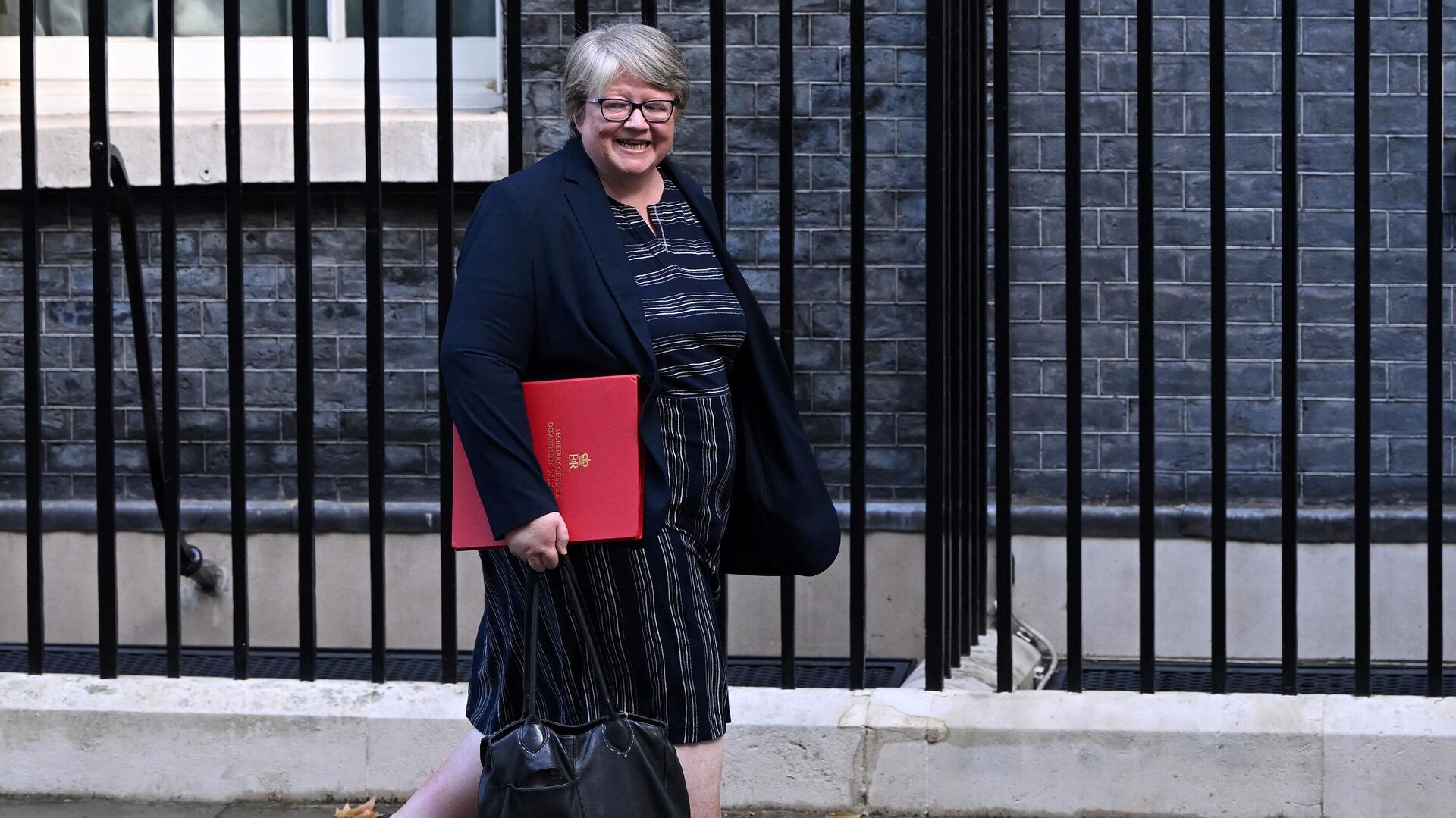https://sputnikglobe.com/20220917/super-patronizing-critics-fuming-about-leaked-uk-health-ministry-order-to-scrap-oxford-comma-1100895700.html
‘Super Patronizing’: Critics Fuming About Leaked UK Health Ministry Order to 'Scrap Oxford Comma'
‘Super Patronizing’: Critics Fuming About Leaked UK Health Ministry Order to 'Scrap Oxford Comma'
Sputnik International
UK Health Secretary Thérèse Coffey previously revealed that the Oxford comma is one of her "pet hates" and she confessed that she never used this particular... 17.09.2022, Sputnik International
2022-09-17T11:28+0000
2022-09-17T11:28+0000
2023-05-28T15:21+0000
world
uk health secretary therese coffey
theresa coffey
united kingdom (uk)
https://cdn1.img.sputnikglobe.com/img/07e6/09/07/1100503052_0:0:3003:1689_1920x0_80_0_0_926838855d7c657eeec7cbf653629ad7.jpg
The UK Department of Health and Social Care, now led by deputy Prime Minister Therese Coffey, has been overwhelmed by problems that need urgent attention. Yet it managed to make time to issue a new directive that has already been branded by critics as “patronizing”, the Financial Times reported.The government department is reportedly telling its employees to avoid using the Oxford comma. This is the name for a comma which appears before the word "and", usually at the end of a list of things, such as “lettuce, bacon, and turnips.”The office of Therese Coffey, appointed by Prime Minister Liz Truss this month, issued this guidance, entitled “new secretary of state ways of working preferences," to hundreds of health staff in an email last Thursday, according to the FT.Sent to staff at the Department of Health and Social Care and workers at the UK Health Security Agency (UKHSA) on behalf of the new Health Secretary, the guidance urged staff to “be positive” and avoid using policy “jargon” in their communications.‘Super Patronizing’The email with the new guidance was described as “super patronizing” by one senior public health official.“It does make you consider if you’re in the right place when a new minister comes in with this,” said an insider, describing the “mood at the UKHSA".Union representatives have been forthright in expressing their irritation with the guidance.“Of course, new ministers will want to introduce new priorities and different ways of working… but part of successful leadership is understanding how messages like this will land with staff.”In response to the report, a UKHSA spokesman said:Coffey has made no secret of her dislike of the Oxford comma, venting her spleen in social media posts from more than a decade ago.In 2011, she wrote on Twitter that she “cannot bear it”, adding she would “constantly remove it”. In a later post she confessed it was one of her “pet hates,” saying:“I abhor the Oxford comma and refuse to use it.”‘Contentious’ Punctuation MarkAlso known as a serial comma or the Harvard comma, the Oxford comma is, essentially, the final comma used at the end of a list of things.When used in a sentence like, “Cats are furry, cute, and cuddly”, the Oxford comma comes before the word “and”. It's considered fussy by many since the sense of the sentence would not be in any way altered were it to be removed. However, on some occasions, an Oxford comma clarifies that all items are separate, and ditching it might be confusing.Proponents of the Oxford comma say it's necessary for removing ambiguity in sentences such as “I like ice cream with chocolate sprinkles, granola bars and celery”, where the lack of an Oxford comma suggests a most eccentric concoction. Similarly "I like baking cakes, dogs and my family" might well strike terror into your nearest and dearest, and at the very least would earn you a visit from the Royal Society for the Prevention of Cruelty to Animals.Online grammar checker Grammarly suggests restructuring a sentence to avoid ambiguity in cases when the Oxford coma is scrapped.Although it is much more widespread in the United States, American news organizations tend to leave the second comma out.Previously, the Oxford comma found itself under the spotlight when the UK government released a commemorative 50 pence coin to mark “Brexit day” on 31 January 2020. It was marked with the phrase “peace, prosperity and friendship with all nations”. Renowned writer Philip Pullman was incandescent with rage and fumed:The former editor of the Times Literary Supplement, Stig Abell, light-heartedly replied, “the lack of a comma after ‘prosperity’ is killing me”.
https://sputnikglobe.com/20200127/one-coin-to-divide-them-all-brits-split-in-two-camps-over-commemorative-brexit-50-pence-1078155334.html
united kingdom (uk)
Sputnik International
feedback@sputniknews.com
+74956456601
MIA „Rossiya Segodnya“
2022
News
en_EN
Sputnik International
feedback@sputniknews.com
+74956456601
MIA „Rossiya Segodnya“
Sputnik International
feedback@sputniknews.com
+74956456601
MIA „Rossiya Segodnya“
uk health secretary therese coffey, theresa coffey, united kingdom (uk)
uk health secretary therese coffey, theresa coffey, united kingdom (uk)
‘Super Patronizing’: Critics Fuming About Leaked UK Health Ministry Order to 'Scrap Oxford Comma'
11:28 GMT 17.09.2022 (Updated: 15:21 GMT 28.05.2023) UK Health Secretary Thérèse Coffey previously revealed that the Oxford comma is one of her "pet hates" and she confessed that she never used this particular brand of punctuation.
The UK Department of Health and Social Care, now
led by deputy Prime Minister Therese Coffey, has been overwhelmed by problems that need urgent attention. Yet it managed to make time to issue a new directive that has already been branded by critics as “patronizing”, the Financial Times reported.
The government department is reportedly telling its employees to avoid using the Oxford comma. This is the name for a comma which appears before the word "and", usually at the end of a list of things, such as “lettuce, bacon, and turnips.”
The office of Therese Coffey, appointed by
Prime Minister Liz Truss this month, issued this guidance, entitled “new secretary of state ways of working preferences," to hundreds of health staff in an email last Thursday, according to the FT.
Sent to staff at the Department of Health and Social Care and workers at the UK Health Security Agency (UKHSA) on behalf of the new Health Secretary, the guidance urged staff to “be positive” and avoid using policy “jargon” in their communications.
The email with the new guidance was described as “super patronizing” by one senior public health official.
“It does make you consider if you’re in the right place when a new minister comes in with this,” said an insider, describing the “mood at the UKHSA".
“The idea that we have to frame issues positively indicates a person who doesn’t want to deal with problems, so that’s not encouraging,” a source was cited as saying.
Union representatives have been forthright in expressing their irritation with the guidance.
“Comments like this from the Health Secretary do nothing to help the morale of an already tired and overstretched workforce,” said Jawad Raza, a chief representative of the health agency’s civil servants, adding:
“Of course, new ministers will want to introduce new priorities and different ways of working… but part of successful leadership is understanding how messages like this will land with staff.”
In response to the report, a UKHSA spokesman said:
“UKHSA does not comment on leaked emails or briefings. We value enormously all of our hard-working colleagues who work tirelessly to make our nation’s health secure.”
Coffey has made no secret of her dislike of the Oxford comma, venting her spleen in social media posts from more than a decade ago.
In 2011, she wrote on Twitter that she “cannot bear it”, adding she would “constantly remove it”. In a later post she confessed it was one of her “pet hates,” saying:
“I abhor the Oxford comma and refuse to use it.”
‘Contentious’ Punctuation Mark
Also known as a serial comma or the Harvard comma, the Oxford comma is, essentially, the final comma used at the end of a list of things.
When used in a sentence like, “Cats are furry, cute, and cuddly”, the Oxford comma comes before the word “and”. It's considered fussy by many since the sense of the sentence would not be in any way altered were it to be removed. However, on some occasions, an Oxford comma clarifies that all items are separate, and ditching it might be confusing.
Proponents of the Oxford comma say it's necessary for removing ambiguity in sentences such as “I like ice cream with chocolate sprinkles, granola bars and celery”, where the lack of an Oxford comma suggests a most eccentric concoction. Similarly "I like baking cakes, dogs and my family" might well strike terror into your nearest and dearest, and at the very least would earn you a visit from the Royal Society for the Prevention of Cruelty to Animals.
Online grammar checker Grammarly suggests restructuring a sentence to avoid ambiguity in cases when the Oxford coma is scrapped.
Although it is much more widespread in the United States, American news organizations tend to leave the second comma out.

27 January 2020, 19:19 GMT
Previously, the Oxford comma found itself under the spotlight when the UK government
released a commemorative 50 pence coin to mark “Brexit day” on 31 January 2020. It was marked with the phrase “peace, prosperity and friendship with all nations”. Renowned writer Philip Pullman was incandescent with rage and fumed:
“The ‘Brexit’ 50p coin is missing an Oxford comma, and should be boycotted by all literate people.”
The former editor of the Times Literary Supplement, Stig Abell, light-heartedly replied, “the lack of a comma after ‘prosperity’ is killing me”.



